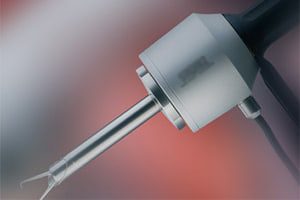
Aetna, the nation’s third largest health insurer, announced that it will no longer cover routine use of the laparoscopic power morcellator, a surgical tool used in fibroid surgery and hysterectomy. Researchers have determined that the morcellator can spread hidden cancer in women. Some hospitals have discontinued use of the tool and some manufacturers have pulled […]

Insurer Will No Longer Cover Power Morcellator
Aetna, the nation’s third largest health insurer, announced that it will no longer cover routine use of the laparoscopic power morcellator, a surgical tool used in fibroid surgery and hysterectomy.
Researchers have determined that the morcellator can spread hidden cancer in women. Some hospitals have discontinued use of the tool and some manufacturers have pulled the device from the market, though the Food and Drug Administration (FDA) has not imposed a ban. Aetna insures some 23 million people, and the loss of coverage for procedures done with power morcellators is significant, according to the Wall Street Journal. A spokeswoman for Aetna said the new policy would go into effect on May 15. Under most circumstances, power morcellation will not be covered.
The power morcellator is a surgical tool used in minimally invasive surgery to cut uterine growths (fibroids) or the uterus itself into small pieces that can be removed through tiny incisions. But if the woman has an undetected cancer, it can be spread in the abdomen by the morcellator’s rapidly spinning blade. This can significantly lower the woman’s long-term chance of survival, according to the WSJ.
The FDA estimates that one in 350 women having fibroid surgery has an undetected uterine sarcoma. Uterine sarcoma is an aggressive cancer that can be rapidly fatal once it spreads. Until recently, the risk of hidden sarcomas was thought to be much smaller, somewhere between one in 500 and one in 10,000, according to the FDA. William Maisel, deputy director for science and chief scientist at the FDA’s Center for Devices and Radiological Health, said there is “no reliable way” to determine if a uterine fibroid is cancerous prior to removal.
Last year the FDA warned of the power morcellator risk, using a new directive called “immediately in effect guidance.” The agency did not issue a draft of the guidance or open a public comment period before the guidance was made final, the New York Times reports. The April 2014 alert discouraged the use of morcellators in most circumstances. As a result, some manufacturers, including the Ethicon division of Johnson & Johnson, took power morcellators off the market. But some hospitals and doctors continue to use the device. Proponents of the tool call for an approach that balances the risks and benefits. Some gynecology groups feel that with carefully selected patients, the morcellator remains a valuable tool, allowing for a less invasive surgery.
The FDA has not yet banned the power morcellator, though some have called on the agency to do so. In addition to last year’s safety warning, the FDA also recommended label changes to warn surgeons of two specific instances in which morcellators should not be used, according to the Times. Morcellators should be avoided in women who are at or near menopause or in patients whose tissue can be removed intact through the vagina or via a small abdominal incision. Morcellators should never be used, the FDA said, when the tissue is known or suspected to be cancerous.


